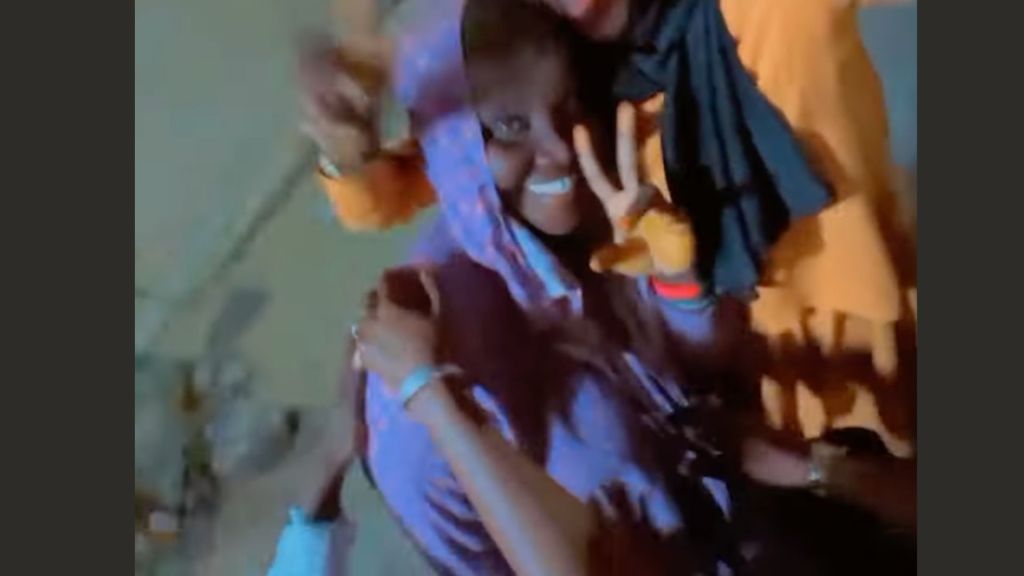Dakar, March 19, 2024—Presidential candidates in Senegal’s elections on Sunday should commit to decriminalizing journalism and dropping all legal proceedings against journalists, the Committee to Protect Journalists said Tuesday.
Senegalese are due to vote on March 24, with 19 candidates vying to lead the country, after a last-minute delay to the poll in February triggered protests. The current president, Macky Sall, has already served two terms and is not running.
In recent years, CPJ has tracked a decline in press freedom in Senegal, characterized by repeated arrests and prosecutions of journalists, attacks by security forces on reporters covering protests, internet shutdowns, and other censorship tactics. CPJ’s 2023 prison census placed Senegal among the top five jailers of journalists in Africa.
On March 12, Senegalese authorities released five journalists jailed since last year, including Ndèye Maty Niang, also known as Maty Sarr Niang, and four journalists from the Allô Senegal media outlet who continue to face prosecution, according to Niang and Famara Faty, a lawyer for the Allô Senegal journalists, who both spoke to CPJ.
“The release from detention of at least five Senegalese journalists jailed since 2023 is welcome news, but they should have never been arrested and their cases underscore the imperative for legal reforms to prevent such criminalization of the press in the future,” said Angela Quintal, head of CPJ’s Africa program. “All candidates seeking to become Senegal’s next president should commit to taking swift actions to ensure practicing journalism is never again treated as a crime and to drop all ongoing prosecutions against journalists in the country, including the four recently released staff of Allô Senegal.”
Niang, a reporter with the privately owned news website Kéwoulo, had been jailed since May 2023 and was granted provisional release on March 12, meaning her prosecution would have continued.
Niang’s lawyer, Moussa Sarr, told CPJ that the journalist’s case was now nullified under the amnesty law, which was passed by the Senegalese parliament on March 6 and enforced days after her release.
The amnesty law canceled legal proceedings over alleged crimes “relating to demonstrations or having political motivations” committed in the context of the political crisis in the country from March 2021 to February 2024, according to CPJ’s review of the law.
Journalists continue to face prosecution
Jailed since November 2023, the four Allô Sénégal journalists—news presenter Ndèye Astou Bâ, columnist Papa El Hadji Omar Yally, camera operator Daouda Sow, and manager Maniane Sène Lô—were released under judicial supervision and must appear at a Dakar court every month, according to Faty, adding that their cases were not covered by the amnesty law.
Allô Sénégal reporter Mamadou Lamine Dièye and technician Moussa Diop were also arrested in November, following a complaint by Senegal’s minister of tourism and leisure, Mame Mbaye Kan Niang, about a broadcast that discussed allegations that Niang committed adultery, but they were released under judicial supervision at that time.
The Allô Sénégal journalists face various charges, including “usurping the function of a journalist,” which stems from the combined application of Senegal’s press and penal code and is punishable by up to two years in prison. Ndèye Maty Niang was also charged with “usurping the function of a journalist,” among other offenses.
In May 2023, another journalist, Serigne Saliou Gueye, editor of the Yoor-Yoor newspaper, was similarly arrested and accused of usurping the function of a journalist and contempt of court. He was freed on provisional release after nearly a month and was required to report to the prosecutor’s office each month and barred from leaving Senegal without permission.
At least four more journalists—Pape Sané, Pape Alé Niang, Pape Ndiaye, and Babacar Touré—were arrested in connection with their work in 2023. They faced accusations under the penal code, including false news and conduct likely to undermine public security, and were released under strict conditions. CPJ could not immediately confirm whether their cases had been nullified under the amnesty law, though their lawyer Sarr said they should “in principle” be included.
